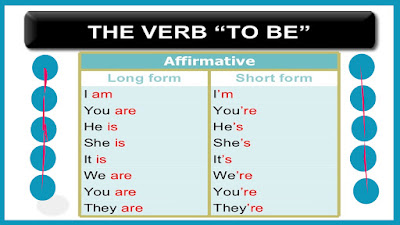'Be' Verbs: You can learn about 'Be' Verbs in this post as part of English Grammar. See also other posts for more details. If possible try to find out for English Grammar Rules. This link can be viewed by clicking on "English Grammar Rules".
'Be' Verbs : ఇంగ్లిష్ గ్రామర్ లో భాగంగా ఈ పోస్టులో 'Be' Verbs గురించి తెలుసుకోవచ్చు. మరిన్ని వివరాలకోసం మిగతా పోస్టులను కూడా చూడండి. వీలయితే English Grammar Rules కోసం తెలుసుకునే ప్రయత్నం చేయండి. ఈ లింక్ "English Grammar Rules" క్లిక్ చేయడం ద్వారా వీక్షించవచ్చు.
'Be' Verbs: अंग्रेजी व्याकरण के भाग के रूप में आप इस पोस्ट में 'Be' Verbs के बारे में जान सकते हैं। अधिक जानकारी के लिए अन्य पोस्ट भी देखें। यदि संभव हो तो अंग्रेजी व्याकरण के नियमों का पता लगाने की कोशिश करें। इस लिंक को "इंग्लिश ग्रामर रूल्स" पर क्लिक करके देखा जा सकता है।
Click Here : "English Grammar Rules"
'Be' Verbs
'Be' Verbs
A verb shows action or a state of being.
I go home. Home is my place to rest. I like the smell of my house. I feel totally relaxed. Home refreshes me. At home, I get ready for a new day.
"Be" verbs indicate a state of being.
Read Also: Basics rules of English Grammar
Verbs must match subjects.
I am a doctor.
He is sleepy.
We are here.
Read Also: Possessive Nouns
Negative sentences need ‘not' after the verb.
I am not a doctor.
He is not sleepy.
We are not there.
Read Also: Singular and Plural Nouns
The verb comes first in interrogative sentences.
Am I a doctor?
Is he sleepy?
Are we there?
"Are not" (is not) can be shortened to "aren't" (isn't).
He isn't sleepy.
We aren't there.
Remember the variations of "be" verbs:
Read Also: Count Nouns vs Non-Count Nouns

 K.S.Chowdary
K.S.Chowdary







%20-%20English%20Speaking%20Basics.jpg)
%20-%20English%20Speaking%20Basics%20-%20Part%20III.jpg)


0 Comments:
Post a Comment